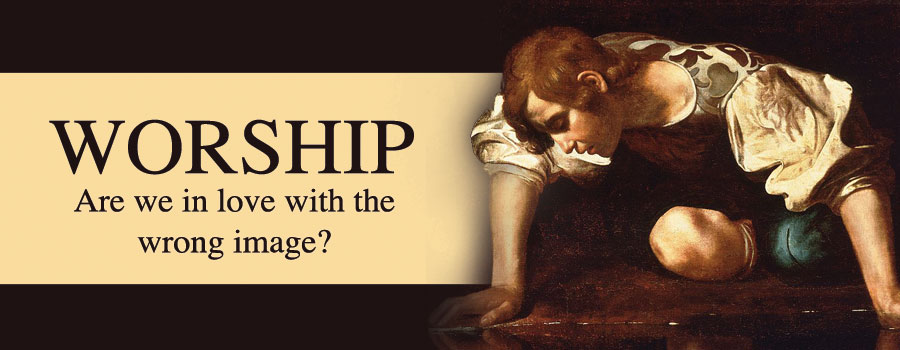Don’t let the big word scare you. It originated with a beautiful baby boy given the name Narcissus. Because of how he was conceived, his mother asked a blind seer if he would live long, to which Tiresias replied that he would as long as he did not become infatuated with himself. As Narcissus grew older his beauty became renowned, while he also developed a reputation for refusing to fall in love with anyone who sought his affection. One young nymph named Echo strongly desired his love, but withdrew into seclusion when Narcissus responded rudely.
Another nymph who heard how Echo had been treated petitioned Nemesis, the goddess of vengeance, to punish the handsome boy, which she agreed to do in a most unique way. On a leisurely stroll through the forest, young Narcissus came upon a glassy stream and stooped down to take a drink. The image he saw in the water was so beautiful he immediately, and for the first time, fell in love. Without realizing he had fallen in love with his own image, his infatuation grew to the point that he lost all desire to do anything else but stare at himself. He longed to touch this image, but every time he tried it would shimmer away, only to return after a little while to tempt him again. The counsel of the blind seer went unheeded as Narcissus’ attachment to his own image kept him so entranced that he died in the very place he thought he had found love. When some of the nymphs came looking for him, all they discovered was a beautiful flower in his place and gave the flower the name it still bears today.
People who become self-centered and self-absorbed have come to be called narcissistic. As a condition or state of mind, narcissism is basically about falling in love with one’s own image, and America is drowning in it. It is all about me. Life now revolves around the self. We should have known we were in trouble when a lie became the cornerstone of American retail—“the customer is always right.” Who knew where we were headed when Burger King started advertising “Have it your way!” I just read of a Miami lawyer who is suing an opposing NBA team because he didn’t get to watch some of the players he liked the night he went to the game. If you work in retail (or basically with the public at large), you know how unhappy people can get when things don’t go their way.
Robert Bork wrote about it in Slouching Towards Gomorrah, calling it “radical individualism.” He saw people demanding an end to limits on their personal gratification or pursuit of pleasure. We all know that this tendency has always been around, as it is part and parcel of human nature. But, it has been the responsibility of a culture and its key institutions to keep this self-absorption at bay. In Losing Our Virtue, David Wells proposes that somewhere between 1910 and 1970, in particular, we shifted from a social code of self-restraint to one of self-gratification. “Our sense that self-gratification is a right stands at the heart of this moral change. The internal ethic of the self—what is right for me—has become the means by which all external standards, external controls, and external expectations are remitted.” Feeling that personal gratification is an American right is a key driving force behind infinite choices as seen in cereal aisles, shoe stores, cable channel guides, and basically any other area of our lives.
Churches experiencing true, biblical worship have never been more essential to American culture. An honest study (from the Bible, not present practices) of the word “worship” in all its forms leads back to the same idea—a voluntary humbling of oneself before another. The heart of worship is an attitude of humility. God took it one step further in giving us a picture of what it looks like outwardly, that of one kneeling before the One he worships. What could be better for a narcissistic people than to bow before Someone infinitely greater than themselves? Shouldn’t church be the one place where there is Someone more important than the consumer to please? True biblical worship will not be easy nor will it fit into most church growth strategies. Our churches are made up of people who breathe the air of a self-absorbed culture every second of every day. Our assemblies are not immune. The threshold of a church’s front door is not some invisible force field that filters out infatuation with the self.
Is it possible that we have fallen in love with the wrong image? Don’t most worship services today tell you more about the preferences of the one worshiping than the attributes of the One being worshipped? Worship loses its true power once that happens. God instructed the Israelites through Moses that the wonderful smelling incense they mixed for worshiping Him was not to be subjected to their own senses and enjoyment (Exodus 30:31-38). He obviously knew this would lead to worship reflecting their tastes more than His holiness. As tiring as it can be, we serve our people well by resisting many of the calls for convenience or increased sensations when it comes to worship. Once we recognize that we represent a timeless kingdom rather than a trendy culture, our obligation to the consumer fades. May I encourage you to use worship to ensure that the image they are left with is His and not our own?

